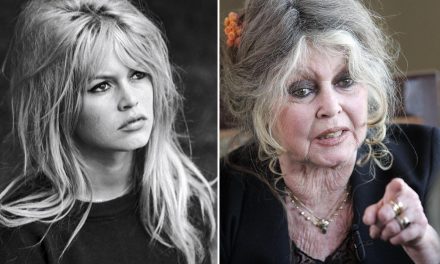… is the kind of television I ought to disapprove of. It is ‘drama run by the costume department,’ as Rupert Murdoch once said of the ruling-class fantasies of grandiose UK period fiction.
It is mostly about ethnically-closed, village and small-city life in the UK.
It is set in and around the Second World War, a cliché for drawing in British audiences when ratings sour, and an alibi for centuries of imperialism: the just war “we” won that embosses endless other conflicts and acts of violent self-interest and delusion, buying into the awful self-mythologising of the UK counterpart to Tom Brokaw’s ‘greatest generation’.
It is a police procedural aimed at, well, people my age. But I don’t really act or dress my age.
Its star comes from Leicester, as do I—a place that even promotes itself as boring.
It was canceled in 2007 after five seasons because ITV wanted younger audiences (a fruitless search that, when combined with a viewer campaign, saw the show restored).
And some dubious sites admire the program: the egregious Wall Street Journal fancies its ‘many layers of moral murkiness’ as Cold War I succeeds the 1939-45 conflict. Good and evil are less distinct because ‘certitude has evaporated’.
The New York Times dubs the show ‘a gift from the gods.’ It finds the stories ‘formulaic … and sometimes downright silly,’ but adores ‘the astonishing level of historical detail and atmosphere’. And Craig Ferguson and the creator Anthony Horowitz love the British nationalism surrounding it—at least when the place is late-night US TV.
But Quadrant, a right-wing Australian literary magazine, denounces “The Hide” episode as ‘leftist propaganda…slimy and dishonest’. That’s an endorsement. And the Jewish Weekly recently noted, bizarrely, that: ‘Alex Brummer, a candidate for the presidency of the Board of Deputies, tweeted: “Bad call by #ITV Foyle’sWar for peddling anti-Semitic trope after events in #ParisAttacks”’.
A punch line is imminent that readers already know is coming.
I love it. I love Foyle’s War. I like the movie-style length and production values, the scripts, the acting, the direction, the mise-en-scène, the history, the detection—I like the deception, too—and the decency.
Foyle’s wars are frequently fought with his own past, with discrimination, with corruption, with bureaucracy, with duplicity, and with sheer unfairness.
The Marxist magazine Political Affairs finds the historian Norman Markowitz extolling the series’ virtues: ‘well-acted[,] powerfully written and directed, and beautifully photographed’ and laden with ‘brilliant statements about both British society and the issues of World War II’ that disclose the complex and contradictory nature of life at a time of intense ideological struggle when ‘[c]lass prejudices, sexism, anti-Semitism, are portrayed in context as both sinister and “normal” to the masters of British class society’. Markowitz likens the eponymous hero to a Dashiell Hammett character, driven by The Code of personal ethics to uncover malfeasance, corruption, and the shadowy, shady links between criminality and the state.
The Los Angeles Times likes the fact (expressed in wonderfully “demographic” terms) that ‘[t]o the credit of their industry, British TV detectives skew older than their American counterparts.’ Lacking ‘good hair, a big gun and a fast car,’ they feature ‘small and quiet’ men. So Foyle’s War scores on opposition to hegemonic masculinity.
Horowitz wrote a very revealing article in 2009 for London’s conservative Telegraph newspaper. He talks about the need to tell stories about ‘a piece of history that was both overfamiliar and underexplored.’ This is beautifully put. It captures perfectly the banal self-confidence and –righteousness that inflect UK/US views of the period.
Foyle’s War was designed, he says, to ‘poke underneath this carapace’ and expose a home front full of ‘people who fed on human misery.’ So anti-Semitism and venal corruption are engaged again and again because they were present, again and again, across UK society.
Horowitz draws on social history and legal statistics to ground his fiction in such attitudes as well as racketeering and governmental incompetence. The ‘finest hour’ of mythology included the worst aspects of British hypocrisy and failure as well as idealism and triumph.
Horowitz regards his hero Foyle ‘as a light cutting through the darkness’ of this world. He does so with reason and decency rather than bravado.
It’s ending. January 18 2015 is the last original transmission. ITV is calling Foyle ‘a classic ITV hero’. And as Horowitz put it when he announced the decision to shutter the show, ‘I’ve had a good war’ (a UK cliché for those who survived and even thrived WWII).
Toby Miller is Emeritus Distinguished Professor at the University of California, Riverside, the Sir Walter Murdoch Professor of Cultural Policy Studies at Murdoch University, Profesor Invitado at the Universidad del Norte, and Professor of Journalism, Media and Cultural Studies at Cardiff University/Prifysgol Caerdydd. He can be contacted at tobym69@icloud.com and his adventures scrutinized at www.tobymiller.org. Indeed he has.





